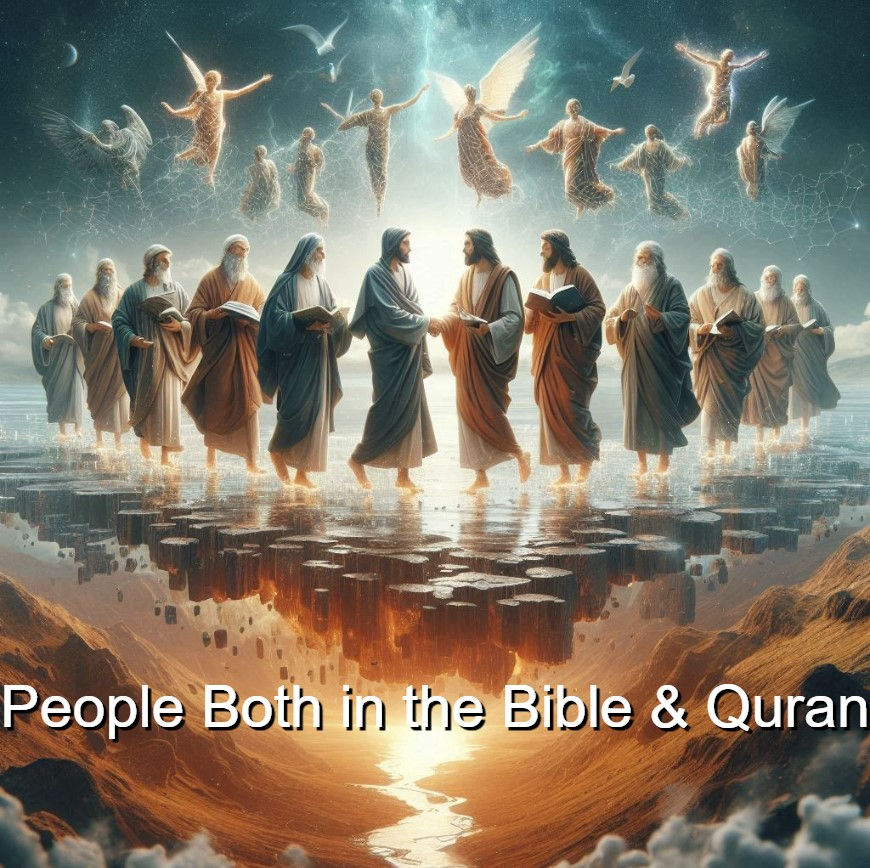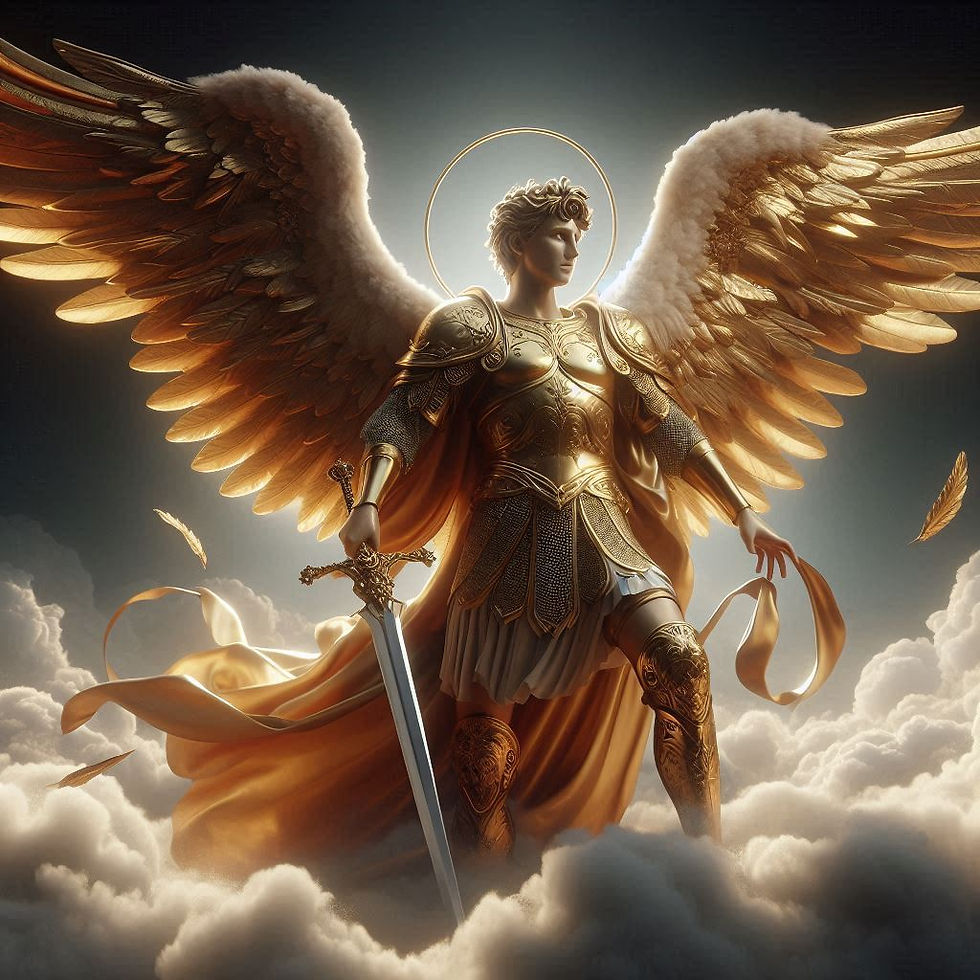People Mentioned in Both the Bible and the Quran
The Bible and the Quran are two of the most significant religious texts in the world, revered by billions. Despite their differences, they share many figures and stories, highlighting the deep connections between Judaism, Christianity, and Islam. Here, we'll explore some of the prominent individuals mentioned in both scriptures and their roles.
1. Adam and Eve
In the Bible:
Genesis 1-3: Adam and Eve are the first humans created by God. They live in the Garden of Eden until they disobey God by eating the forbidden fruit, leading to their expulsion.
In the Quran:
Surah Al-Baqarah 2:30-37: Adam is created by Allah and placed in paradise. The story of disobedience involves both Adam and his wife (not named as Eve), who are tempted by Satan and subsequently forgiven after seeking repentance.
2. Noah (Nuh)
In the Bible:
Genesis 6-9: Noah is instructed by God to build an ark to save his family and pairs of every animal species from a worldwide flood.
In the Quran:
Surah Hud 11:25-48: Nuh (Noah) is sent as a prophet to warn his people, and he builds an ark to save believers and animals from the flood.
3. Abraham (Ibrahim)
In the Bible:
Genesis 12-25: Abraham is called by God to leave his homeland and is promised to be the father of a great nation. He is tested by God to sacrifice his son Isaac.
In the Quran:
Surah Al-Baqarah 2:124-141: Ibrahim (Abraham) is a revered prophet and patriarch. The Quran mentions his willingness to sacrifice his son, but it is traditionally understood to be Ishmael (Ismail).
4. Lot (Lut)
In the Bible:
Genesis 19: Lot is Abraham's nephew. He lives in Sodom and is saved by angels before the city is destroyed due to its wickedness.
In the Quran:
Surah Hud 11:77-83: Lut (Lot) is a prophet sent to the people of Sodom and Gomorrah, who are destroyed due to their sinful behavior.
5. Joseph (Yusuf)
In the Bible:
Genesis 37-50: Joseph is the eleventh son of Jacob. His brothers sell him into slavery, but he rises to become a powerful figure in Egypt.
In the Quran:
Surah Yusuf (Chapter 12): Yusuf (Joseph) is betrayed by his brothers, sold into slavery, and ultimately becomes a significant figure in Egypt.
6. Moses (Musa)
In the Bible:
Exodus 1-14: Moses leads the Israelites out of Egyptian bondage, parts the Red Sea, and receives the Ten Commandments from God.
In the Quran:
Surah Al-Qasas 28:3-43: Musa (Moses) is a major prophet who leads the Israelites out of Egypt and receives the Torah.
7. David (Dawud)
In the Bible:
1 Samuel 16 - 1 Kings 2: David is the second king of Israel, known for his defeat of Goliath and authorship of many Psalms.
In the Quran:
Surah Sad 38:17-26: Dawud (David) is a prophet and king, known for his wisdom and psalms.
8. Solomon (Sulayman)
In the Bible:
1 Kings 1-11: Solomon is the son of David, known for his wisdom, wealth, and building the Temple in Jerusalem.
In the Quran:
Surah An-Naml 27:15-44: Sulayman (Solomon) is a prophet and king known for his wisdom and ability to communicate with animals.
9. John the Baptist (Yahya)
In the Bible:
Luke 1:5-25, 57-80; Matthew 3: John the Baptist is the forerunner of Jesus, baptizing people for the repentance of sins.
In the Quran:
Surah Maryam 19:7-15: Yahya (John the Baptist) is a prophet who prepares the way for Jesus (Isa) and is noted for his piety and wisdom.
10. Jesus (Isa)
In the Bible:
New Testament: Jesus is the central figure, regarded as the Son of God, the Messiah, and the savior of humanity. His life, teachings, crucifixion, and resurrection are detailed in the Gospels.
In the Quran:
Surah Maryam 19:16-36; Surah Al-Imran 3:45-55: Isa (Jesus) is a significant prophet, born of the Virgin Mary (Maryam), performing miracles, and seen as the Messiah. However, the Quran denies his crucifixion, stating he was taken up by Allah.
Conclusion
The shared figures in the Bible and the Quran emphasize the deep connections between Judaism, Christianity, and Islam. These narratives, while differing in details, highlight common themes of faith, prophecy, and divine guidance. Understanding these shared stories fosters a greater appreciation for the interconnectedness of these Abrahamic faiths, promoting dialogue and mutual respect.

In our journey through life, we often seek guidance and wisdom beyond our own understanding. St. Mykul’s prayer is a beautiful expression of this desire, a heartfelt plea for divine intervention and alignment with Jehovah’s will. It serves as a reminder of the profound connection we can cultivate with the divine, allowing us to become vessels of His wisdom and love.
St. Mykul’s prayer:
“I pray for Jehovah to speak through me all the time, and I pray for Jehovah to remove all my thoughts, and implant His thoughts all the time, as I do not even want my thoughts.”

Michael in the Bible:
Jude 1:9: "But even the archangel Michael, when he was disputing with the devil about the body of Moses, did not himself dare to condemn him for slander but said, 'The Lord rebuke you!'"
Michael contends with the devil over Moses' body.
Revelation 12:7-9: "Then war broke out in heaven. Michael and his angels fought against the dragon, and the dragon and his angels fought back. But he was not strong enough, and they lost their place in heaven. The great dragon was hurled down—that ancient serpent called the devil, or Satan, who leads the whole world astray. He was hurled to the earth, and his angels with him."
Michael leads the heavenly forces against the dragon (Satan).
Michael in the Quran:
Surah Al-Baqarah 2:98: "Whoever is an enemy to Allah and His angels and messengers, to Gabriel and Michael, to Allah, is an enemy to those who reject Faith."
In Islam, Michael (Mikail) is one of the archangels and is believed to have important roles, such as providing nourishment for bodies and souls and leading the angels in worship and obedience to God.

Comments